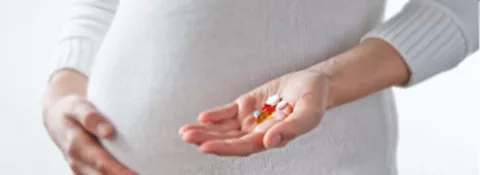The survey found that many women with epilepsy are still not receiving information from health professionals about the risks of valproate, leaving their potential future children at risk of harm. This is despite more stringent regulations being introduced two years ago by the Medicines and Healthcare Products Regulatory Agency (MHRA) to ensure that every woman and girl taking the medicine is able to make an informed choice. Almost half (44%) of participants said they had not discussed the risks of taking the medicine with their health professionals in the past 12 months. And just 41% of the respondents taking valproate said they had signed an Annual Risk Acknowledgement Form. This form is a written record that women and girls taking valproate are aware of the risks and shows they have discussed options for switching treatment where necessary.
Under the current regulations, valproate must no longer be used for women and girls who are able to become pregnant unless there is a Pregnancy Prevention Plan (PPP) in place. The PPP, mandatory at prescription, is an intervention from the MHRA designed to make sure patients are fully aware of the risks of valproate use in pregnancy and the need to avoid becoming pregnant. Despite either currently being on valproate, or having been on the drug at one time since August 2018, 56 of the women surveyed said they had never received any of the PPP materials. In this group, there was an alarmingly low level of awareness about the potential harms of sodium valproate. 1 in 3 (34%) women were unaware that valproate can cause birth defects and nearly half (43%) didn’t know about the potential risks of learning and developmental problems.
The MHRA estimates that around 10% of babies born to women who take valproate during pregnancy are born with birth defects. Up to 40% are at risk of developmental issues that can lead to learning difficulties.
The charities are pushing for more to be done to encourage and resource health professionals, including GPs, to have conversations about the risks of valproate.They believe it is imperative that every woman taking valproate is making an informed choice so the potential risk to unborn babies is minimised. They would welcome the creation of a register containing details of all woman taking valproate, that would make the communication of the risks easier.
Mark Devlin, chief executive of Young Epilepsy, said:
“It is shocking to hear that up to 1 in 5 women taking valproate remain unaware of the potential severe risks of its use in pregnancy. Young women and girls who have epilepsy – as well as their parents or carers – must have the information they need to make fully informed choices on the appropriate treatments available. The advice on valproate use and its associated risks will vary depending on a young person’s age and broader needs. This survey tells us that much more needs to be done urgently to ensure information is made accessible and understandable to young women of different ages and abilities.”
Epilepsy Action, Epilepsy Society and Young Epilepsy have shared the results of this survey with the team conducting The Independent Medicines and Medical Devices Safety Review, chaired by Baroness Julia Cumberlege CBE DL. It is hoped that the review, to be published on 8 July, will address the long-standing issues surrounding valproate, as well as the current low level of awareness when it publishes its report next month.
Women and girls should not stop taking valproate without first discussing it with their doctor. Up-to-date information and guidance on valproate use can be found at https://www.gov.uk/guidance/valproate-use-by-women-and-girls.



